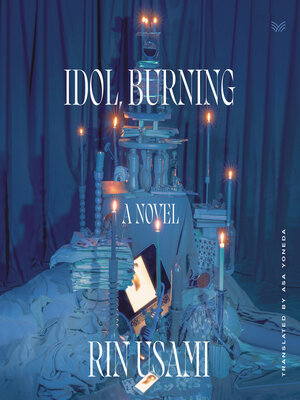Whether you’re a longtime devoted fan of JPop, curious about Japanese or pop music culture, or just looking for a good short read, we’ve got you. Hybrid Heart and Idol, Burning are both compelling, nuanced takes on the promises and perils of fame via the idol system, one from the perspective of an idol herself, and the other from a devoted fan.

Hybrid Heart (Iori Kusano) – It takes so much to be an idol, and Kusano explores that verb specifically—takes. In the pursuit of her singing dream, Rei has slowly had everything taken from her. Her freedom. Her privacy. Her relationships—especially with her best friend Ririko and former groupmate. When Ririko was caught having an unsanctioned romantic relationship, their manager cut all ties, and demanded Rei do the same. Rei stayed in the idol world, but her allegiance to Kosaka doesn’t cut both ways: he’s growing even more paranoid about losing another idol to scandal. His fear drives him to tighten his control, monitoring everything that Rei says, posts, eats, her sleep, her waking—everything via apps installed in her apartment and even in her body.
Even in this suffocating atmosphere, Rei still craves the chance to sing in front of a crowd. It sustains her through the humiliation and isolation of her days trying to be what others want. Exactly how much can she take—and is there a chance for her to take anything back?
Idol, Burning (Rin Usami; trans. Asa Yoneda) – Akari wants one thing only: to be a fan of child star turned pop idol Masaki. His beauty, his talent, and his

Akari struggles in school due to what seems like an untreated learning disability, described in poignant detail made all the more heartbreaking for their matter-of-fact-ness. She can’t be a high achiever like her sister, and her anxiety on top of it all likewise makes it hard for her to keep up at her part-time job. Her parents and classmates don’t understand why she’s different, which is why she needs Masaki so badly. In giving him all of her devotion, all of her effort, and all of her time, Akari finds both comforting anonymity as one fan among thousands, and a chance to stand out for positive reasons with her popular fandom blog.
Worship—and it really is a kind of religious devotion—of Masaki keeps Akari going, but when he is accused of assaulting a female fan, it begins a chain of events in the idol world that can’t help but reverberate through Akari’s world as well. I was hoping that this book would address issues of gender and violence, but the book is actually more of a psychological study of fandom, exploring with great compassion how a girl can choose to devote herself to an idol, and how the choice to do so can be both empowering and problematic.
For those who follow Japanese publishing, a note: Usami won the Akutagawa Prize for Idol, Burning while she was still in university.
